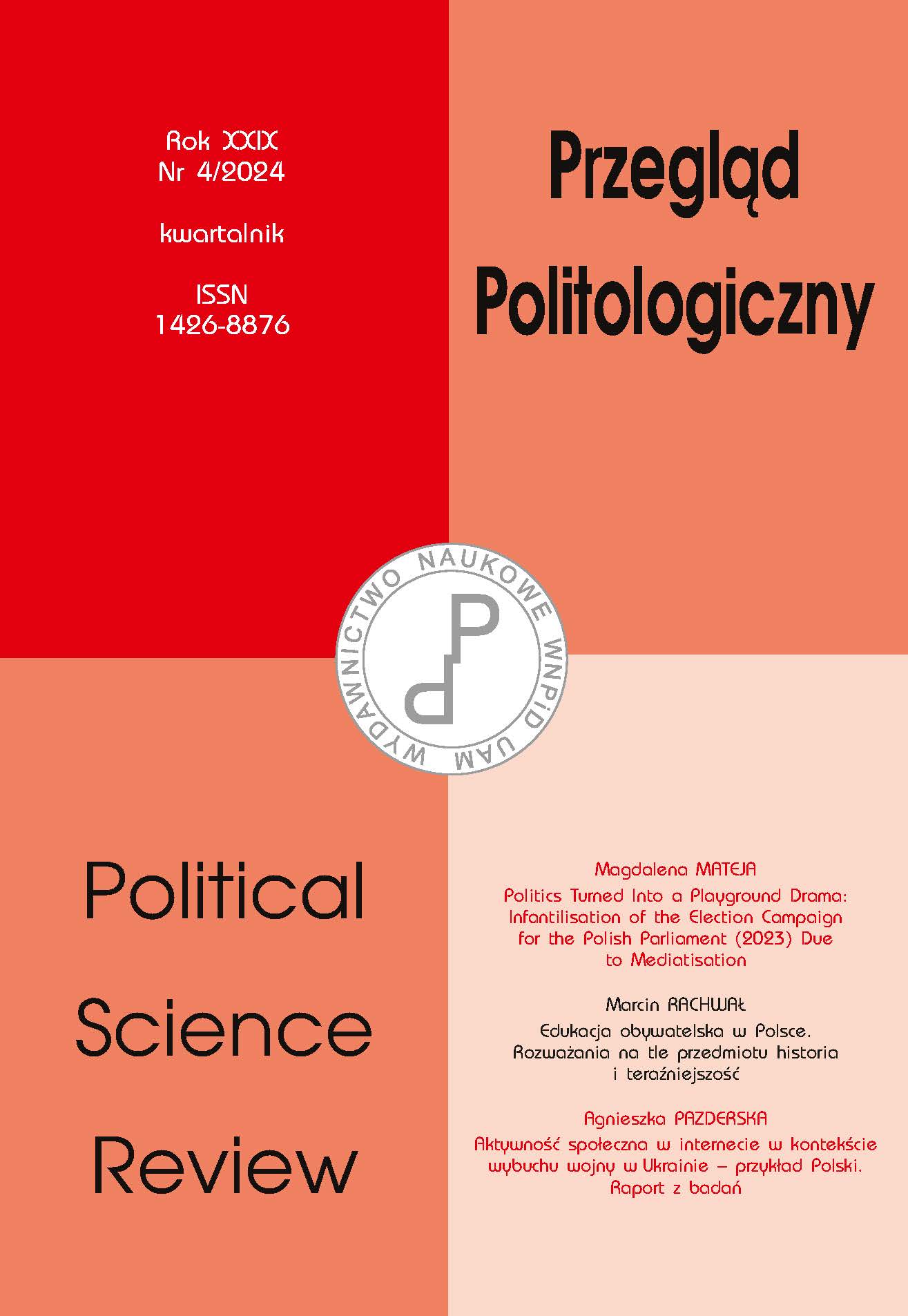The Standard of Living as a Correlate of Electoral Preferences in the 2020 Presidential Elections on the Example of the Greater Poland Voivodeship
The Standard of Living as a Correlate of Electoral Preferences in the 2020 Presidential Elections on the Example of the Greater Poland Voivodeship
Author(s): Krzysztof Hajder, Grzegorz MarciniakSubject(s): Politics / Political Sciences, Politics, Public Administration
Published by: Uniwersytet Adama Mickiewicza
Keywords: electoral preferences; standard of living; presidential elections; Perkal’s indicator
Summary/Abstract: The aim of the study is to describe electoral preferences of the inhabitants of the Greater Poland Voivodeship in elections of the President of the Republic of Poland in 2020. The study attempts to establish the correlation between standard of living and results of the candidates in the first and second (runoff) rounds of elections. The literature review allowed to establish the theoretical basis for research on elections in the field of political science and electoral geography. The results of the presidential elections in 2010, 2015 and 2020 in the voivodship were analyzed against the national background. Then, based on the Perkal’s method, a synthetic indicator of the standard of living was developed in the studied counties. The last step was to investigate the relationship between the? standard of living and election results of candidates.Research has shown correlation between candidates results and the standard of living. A. Duda’s results correlated negatively each time, while R. Trzaskowski’s results correlated positively. Additionally, it was noted that Duda achieved the highest results in poviats with a low and average standard of living, and (on the other hand) Trzaskowski in poviats with a very high and high level. On the basis of the election years analyzed, the political preferences of the inhabitants of the region were defined as liberal and left-wing, as they more willingly voted for candidates of such profiles than for conservative and right-wing politicians.
Journal: Przegląd Politologiczny
- Issue Year: 2024
- Issue No: 4
- Page Range: 69-86
- Page Count: 18
- Language: English

